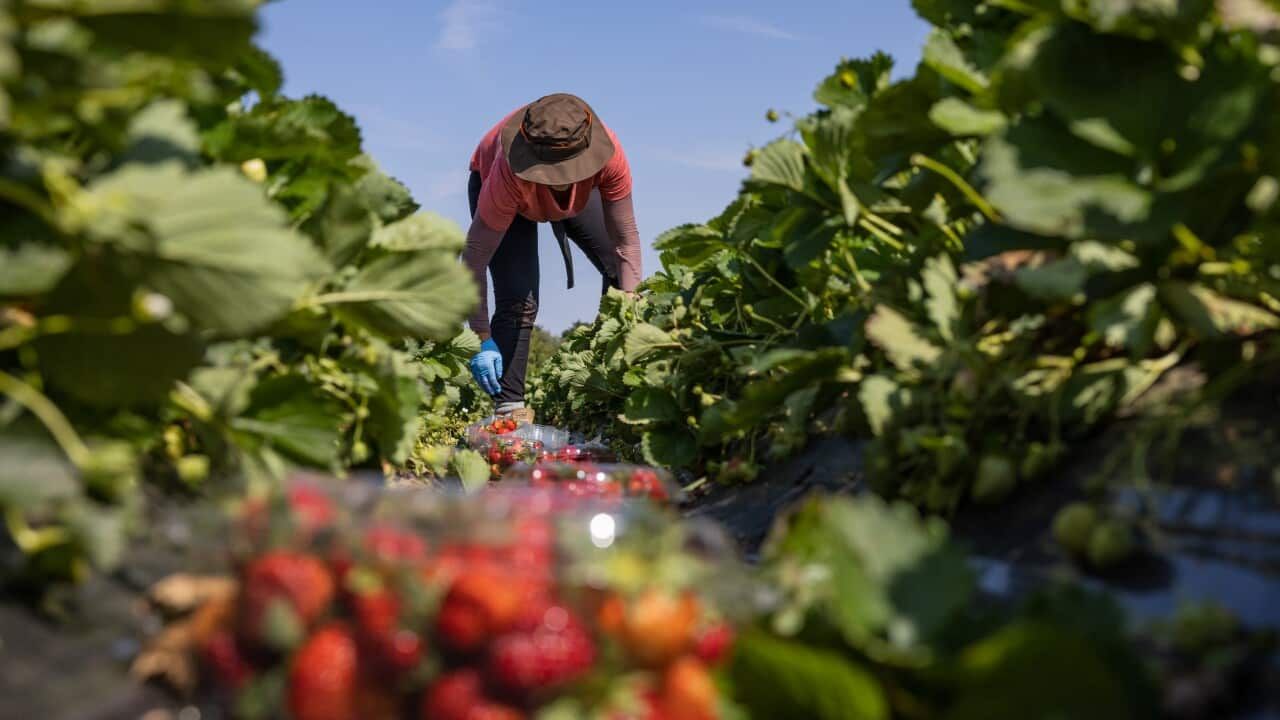Key Points
- A new report highlights the issues contributing to an "emerging" modern slavery crisis in New South Wales.
- It says Pacific workers and backpackers working in across a number of sectors and rural and regional NSW are at risk.
- Modern slavery can include things like debt bondage, forced labour, sexual servitude, and human trafficking.
Pacific workers and backpackers working in several industries in NSW are at risk of debt bondage, forced labour, deceptive recruiting, sexual servitude, and human trafficking, according to a new report.
The concerns have been detailed in a report published on Wednesday by the Office of the NSW Anti-slavery Commissioner, and centre on temporary migrant workers employed in rural and regional NSW.
"These workers, who are trapped in exploitative situations, form part of the estimated 16,400 people trapped in modern slavery in NSW," NSW anti-slavery commissioner and report author James Cockayne, said.
According to the report, the "emerging crisis" of modern slavery is "complex" due to the difficulty in regulating the agriculture, horticulture, and meat processing sectors.
Not only do these sectors employ a high proportion of vulnerable migrant workers, including Pacific Australia Labour Mobility (PALM) workers and backpackers or Working Holiday Makers (WHM), but regulators also have to contend with a large number of employers, dispersed geography, and high seasonality in the case of agriculture and horticulture.
There is a high reliance on labour-hire companies in NSW, the ACT, Victoria, South Australia and Queensland. They are not subject to specific regulatory schemes.
Employing WHMs does not usually require registration, so federal and state governments may find it difficult to pinpoint where and who employers are.
Additionally, visa limitations for PALM workers mean they don't have the right to change employers during their stay in Australia. Around 70 per cent of PALM workers in NSW are in the 'long-term' stream, with contracts running up to four years.
A PALM worker can only transfer to another employer at the request of the original employer or at the discretion of the Department of Employment and Workplace Relations.
Sophia Kagan, principal policy adviser on labour migration with the Office of the NSW Anti-slavery Commissioner, and report co-author, said female temporary migrant workers are particularly vulnerable to slavery.
"Shortcomings in the current schemes have led to an increase in disengaged female PALM workers reporting violence, coercive control, and sexual exploitation," she said.
"Pregnant women workers may be left without antenatal services. Others face homelessness and the risk of deportation, yet they are often too afraid to seek formal justice," she said.
The report also highlights that due to limited state support or intervention, the burden of helping these workers falls on local communities and community service providers, who are not adequately resourced to provide support.
To prevent and combat this "emerging" modern slavery crisis, the report recommends a trauma-informed and worker-centred investigation; suitable training for NSW government frontline agencies; a review of visa settings and protection requirements; the creation of regional migrant centre hubs; and funding to support local actors.
Moe Turaga, a modern slavery survivor and advocate, said: "People like me come to Australia hoping for better job opportunities and a better future for our families, but many are confronted by harsh realities once they arrive.
"Right now, too many people are being denied their basic rights. We need stronger regulations and support systems to make NSW a truly welcoming place for guest workers.”












